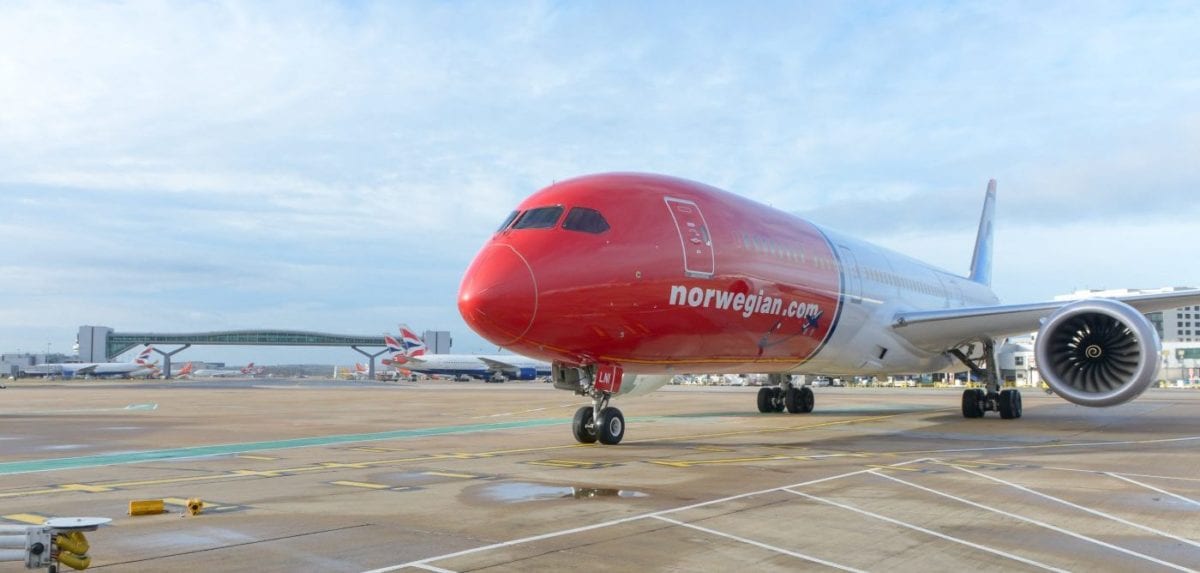A promising ultra-low-cost carrier that ferried passengers between the U.S. and Europe for cheap went kaput almost overnight. The CEO of one of the biggest players in the transatlantic budget airline game is warning of fare increases. As rising fuel prices put a squeeze on airlines big and small, change is coming to the world of cheap travel. It’s just not clear when those changes will hit.
But the signs are ominous. Primera Air abruptly declared bankruptcy earlier this month. The budget airline based out of London-Stansted (STN) had expanded aggressively with dirt cheap fares. Increased fuel prices and problems with aircraft deliveries combined to put them out of business.
More recently, Norwegian Air CEO Bjorn Kjos said “there is no chance” airlines can stay in business without raising fares. He specifically noted the drastic increase in their fuel costs – up 85% year over year for the last financial quarter.
Jet fuel is one of the airlines’ biggest cost, and prices are rising fast. According to International Air Transport Association (IATA), jet fuel prices are up 32% compared to this point last year.
Bigger airlines are better equipped to handle the higher cost. They can – and have – raise fees on checked bags or cabin upgrades. All the major domestic airlines raised the price for a checked bag from $25 to $30 earlier this year.
But for aggressive, upstart airlines like Norwegian, Primera and WOW Air, there’s not as much room for error. And more closures or price hikes at those carriers could have a domino effect. It’s not just the Norwegians and the Primera Airs of the world that will be affected. Budget airlines have captured a new market of price-conscious travelers, helping drive down prices across the board. That new competition is why we routinely see sub-$400 – even sub-$300 – round trip fares to Europe on Delta, American, and United.
Despite the fact that airlines are setting record profits, these rising fuel prices mean trouble. Airline earnings are expected to slip from $38 billion in 2017 to $33.8 billion this year, according to IATA. While $33.8 billion sounds pretty good to me, investors in Delta and American aren’t the type to just take the loss. And the feisty budget airlines simply can’t afford it.
Something, at some time, has to give.
Our Analysis
A few months back we asked the question: Is the end of the golden era of flight deals approaching? Our answer was: not yet. And at this point, it’s still the same. Don’t expect airfare to skyrocket overnight.
But Primera’s collapse and Norwegian Air’s warning about higher prices isn’t encouraging. Airlines are starting to reach their breaking point. Airlines can only eat higher cost of fuel for so long, or find clever workarounds before they foot flyers with the bill.
If more budget carriers follow Primera or raise their prices, the competition that has brought fuel prices down starts to disappear. That’s bad news for everyone, whether you’re flying solo on Norwegian or a diehard Delta flyer heading to London.
Bottom Line
It’s too early to cry wolf, but the latest signs of trouble in the world of budget carriers have us worried. It just underscores the importance of utilizing points and miles to travel more, as well as booking the best flight deals you find here and through our Thrifty Traveler Premium service.
